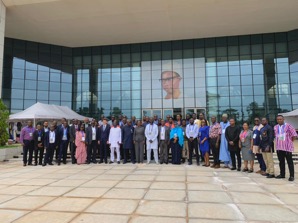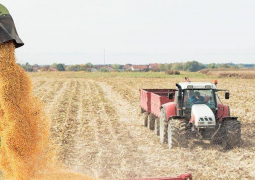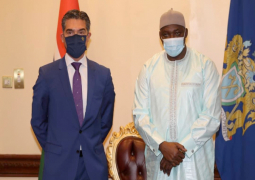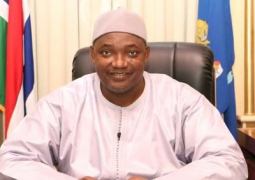
Funded by IFAD, the training starts from the 30th September to 4th October 2024, attracting participants The Gambia, Ghana, Liberia, Nigeria and Sierra Leone.
Declaring the workshop open, Mod Secka, the permanent secretary at the Ministry of Agriculture, said he was proud that The Gambia is the first English speaking nation to host this event, while thanking the organisers for choosing The Gambia.
He said that procurement is at the heart of every project and is a key driver for successful implementation. He added that a well-functioning procurement system directly correlates to timely delivery, quality of goods and services and overall success.
According to PS Secka, public procurement has evolved from an administration to a strategic function with the overarching principles of values for money, integrity, and sustainable outcomes. He said it is a complex development tool that impacts multiple sectors of the economy presenting both opportunities and challenges.
He described these opportunities as timely delivery of high-quality public services, promotion of sustainability through a focus on green products and services, supporting micro, small, and medium enterprise, enhancing trade and competitiveness. improving transparency through the use of new technologies and reducing corruption.
PS Secka revealed that a significant portion of IFAD and government budgets – estimated at 82-85% was channeled through procurement units that contract suppliers of goods and services. “It is therefore crucial to prioritise efficient and effective procurement practices to optimize this substantial investment,” he emphasised.
PS secka further reiterated that the seminar would address those challenges through open discussions, case studies, and analysis of country – specific situation, while aligning with IFAD principles of efficiency, transparency and value for money.
PS Ceesay also revealed that IFAD has been in The Gambia since 1982, and has supported 11 projects and programmes in The Gambia, amounting to US$268.3 million, with IFAD contributing US$125.43 million, positively impacting nearly 200,000 households.
According to PS Secka, IFAD’s support has focused on empowering, fairness, managing watersheds, improving market access, developing rural finance, and enhancing training and extension services.
He was delighted that the partnership between IFAD and the government of The Gambia has been characterised by trust and mutual benefit.





